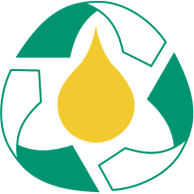Oil, oil filter and antifreeze stewards have many different obligations to meet when doing business in Canada’s ten provinces and three territories. Since environmental jurisdiction is provincial, several key stewards foresaw that the best way to meet these obligations was by working proactively across provincial boundaries. The collaborative process began in 1994, with the formation of the Western Canada Task Force (WCTF) that successfully worked with western Canadian governments to develop similar legislation and regulations.
These common legislative and regulatory tools provided the framework for the development in the late 1990’s of near identical Used Oil Management Associations (UOMAs) in Alberta, Saskatchewan and Manitoba. In the early 2000’s, similar programs were launched in British Columbia and Quebec, and later in New Brunswick and Prince Edward Island. The WCTF transitioned into the National Used Oil Material and Antifreeze Advisory Council (NUOMAAC). These UOMAs developed common steward services such as the EHC Applicable Products List, one Compliance Review Team, a common website and a common EHC Remittance Form. Work continues to develop UOMAs in Newfoundland/Labrador, Nova Scotia and support the territories, but a number of challenges still remain in making the program truly national.
While used oil is not regulated in Ontario, the Municipal Hazardous and Special Waste (MHSW) Regulation (Ontario Regulation 542/06) in combination with the approved Municipal Hazardous and Special Waste Program Plan regulates the collection and recycling of used oil filters, antifreeze, as well as oil and antifreeze containers. The fees and fee methodologies used in Ontario have changed often over the years, and stewards provide regular feedback to NUOMAAC and the UOMAs requesting the development of a UOMA-style program in Ontario, directed by Ontario filter, antifreeze, and oil and antifreeze container stewards.
However, the Ontario government may soon or may already have by the time this newsletter is published enact new legislation known as Bill 151 –the Waste-Free Ontario Act, 2016 (short title). The Act is also known as (long title): An Act to enact the Resource Recovery and Circular Economy Act, 2016 and the Waste Diversion Transition Act, 2016 and to repeal the Waste Diversion Act, 2002. This Act is omnibus legislation that accomplishes four goals:
- repeals the old legislation;
- legally continues Ontario’s existing regulated programs, Industry Funding Organizations (IFO), and Industry Stewardship Plans (ISPs) under the Waste-Free Ontario Act, 2016;
- enables the wind down of Ontario’s existing regulated programs and Industry Funding Organizations, and
- creates a framework for establishing 100% extended producer (EPR) responsibility of designated materials.
What this Act means for Ontario stewards is that upon full implementation of the Resource Recovery and Circular Economy Act, 2016 and designation of used oil and antifreeze materials under this Act, Ontario stewards will (for the first time in their history) have the opportunity and authority to establish an Ontario UOMA that is harmonized with the rest of Canada, if that is what they want.
Over the past year, under the old legislation (The Waste Diversion Act, 2002), a core group of Ontario stewards, represented by Automotive Materials Stewardship (AMS), submitted an Industry Stewardship Plan (ISP) to Waste Diversion Ontario (WDO). This was done for two main reasons:
- to reduce the liability of an annual loss of HST Input Tax Credits of $2 to $2.5 million annually, and
- to have predictable steward fees for improved budgeting.
Having an approved ISP in place under the old legislation also provides another advantage: the ISP legally continues under Waste-Free Ontario Act, 2016 [until the Municipal Hazardous Waste Program (or part thereof relating to used oil and antifreeze) is wound up and management of used oil and antifreeze materials are transitioned to 100% EPR], and enables those stewards who are part of the ISP to apply to WDO to change their ISP service provider, if they wish.
In other words, Ontario stewards who have already joined the AMS-led ISP are not obliged to wait for full implementation of 100% EPR for oil and antifreeze materials under the Resource Recovery and Circular Economy Act, 2016 to join an Ontario steward-led UOMA. An Ontario UOMA is possible anytime after proclamation of the Waste Diversion Transition Act, 2016, if that is what stewards want.
Many Ontario stewards continue to approach NUOMAAC inquiring how soon an UOMA- style organization could be established in Ontario to work seamlessly and cooperatively with the other seven UOMAs in Canada.
Therefore, NUOMAAC has developed a confidential survey with the following objectives to:
- Determine our members’ satisfaction with current UOMA programs; and
- Gather data on the desire of Ontario stewards to establish an UOMA-style filter, antifreeze, oil/antifreeze/DEF container recycling program.
Complete the survey by November 30, 2016. If you are not the UOMA contact for your company, please forward this newsletter and survey to the UOMA Program Contact for completion of this survey. Your help is greatly appreciated. Thank you.

